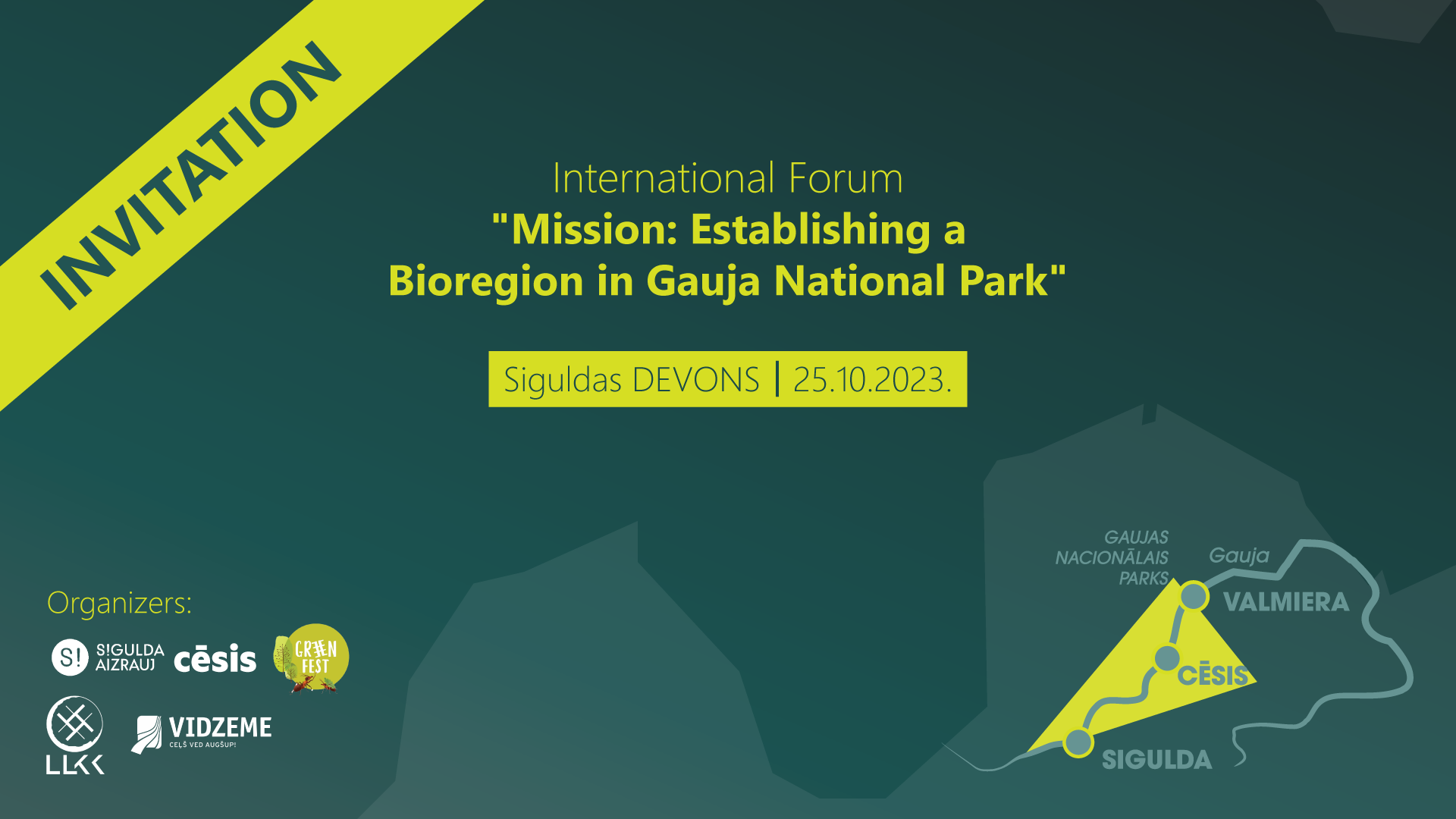What was the challenge/ problem addressed?
A key principle in bioregionalism is reinhabitation, which means building healthier ways of living that are responsible, ethical, that not only maintain but regenerative our local ecosystems, and working with our natural ecosystems, aligning human activity with our bioregions, rather than for human habitation. At present, many people do not think about sustainable farming and the fact that it is often possible to produce most of the necessary raw materials in their own environment. Bioregionalism utilizes them to accomplish three main goals: restore and maintain local natural systems; practice sustainable ways to satisfy basic human needs such as food, water, shelter, and materials; and. support the work of reinhabitation.
How did you solve the problem?
An international forum, “Mission – Creation of a Bioregion in the territory of the Gauja National Park”, was organised on 25 October in Sigulda, Vidzeme region. The event gathered more than 200 participants. They were representatives from the state, municipalities, non-governmental, private organisations, and active representatives of the local community. The Forum had international speakers reviewing the most essential aspects of creating a successful, sustainable bioregion. During the event, 212 forum participants, including 13 institutional partners, signed the memorandum of goodwill that defines the directions in which the development of the bioregion can be primarily strengthened. The promise will be reinforced with specific actions and activities binding on all parties that have signed the memorandum. The participants learned about organic food production and market in Europe and the benefits of sustainable resource management – healthy food in educational institutions, the role of cooperatives in developing organic farms, slow tourism and a zero-waste approach to resource management.
What is innovative in your practical case?
This type of system/ bioregion is the first one in Latvia.
What are the success factors in solving the problem?
- increase innovativeness of the region
- adapt smart specialisation approaches
- adjust innovation ecosystems
- untap digitalisation
- consider uneven territorial development Main success factor were – working together and approach common goal.
Unexpected fails, if any
Still ongoing process
Lessons learned
Educating people and all parties involved in the project of the importance and benefits of any kind of bioregion is very important to operate successfully.
What role does the advisor or advisory service play within the practical case
Advisors role in this project is knowledge transfer and output transfer to all involved parties (farmers, institutes etc.) to show importance and benefits of the project outcome.
Can your approach be transferred and/or adapted for other innovation challenges and regions?
Yes.
For sharing the experience on the good practice, please contact Edgars Dzelme (email: edgars.dzelme@llkc.lv, phone: +371 20060859)
